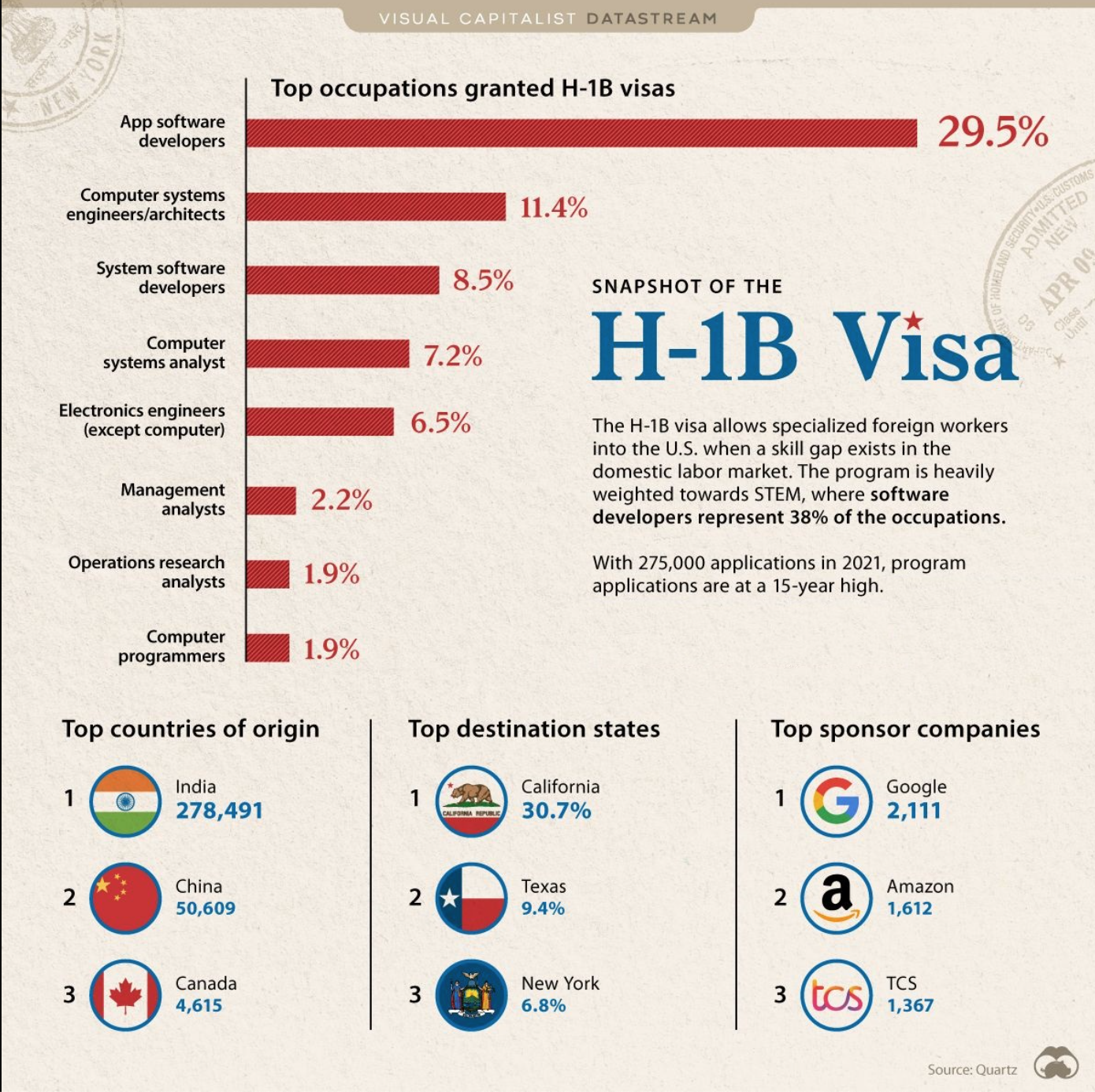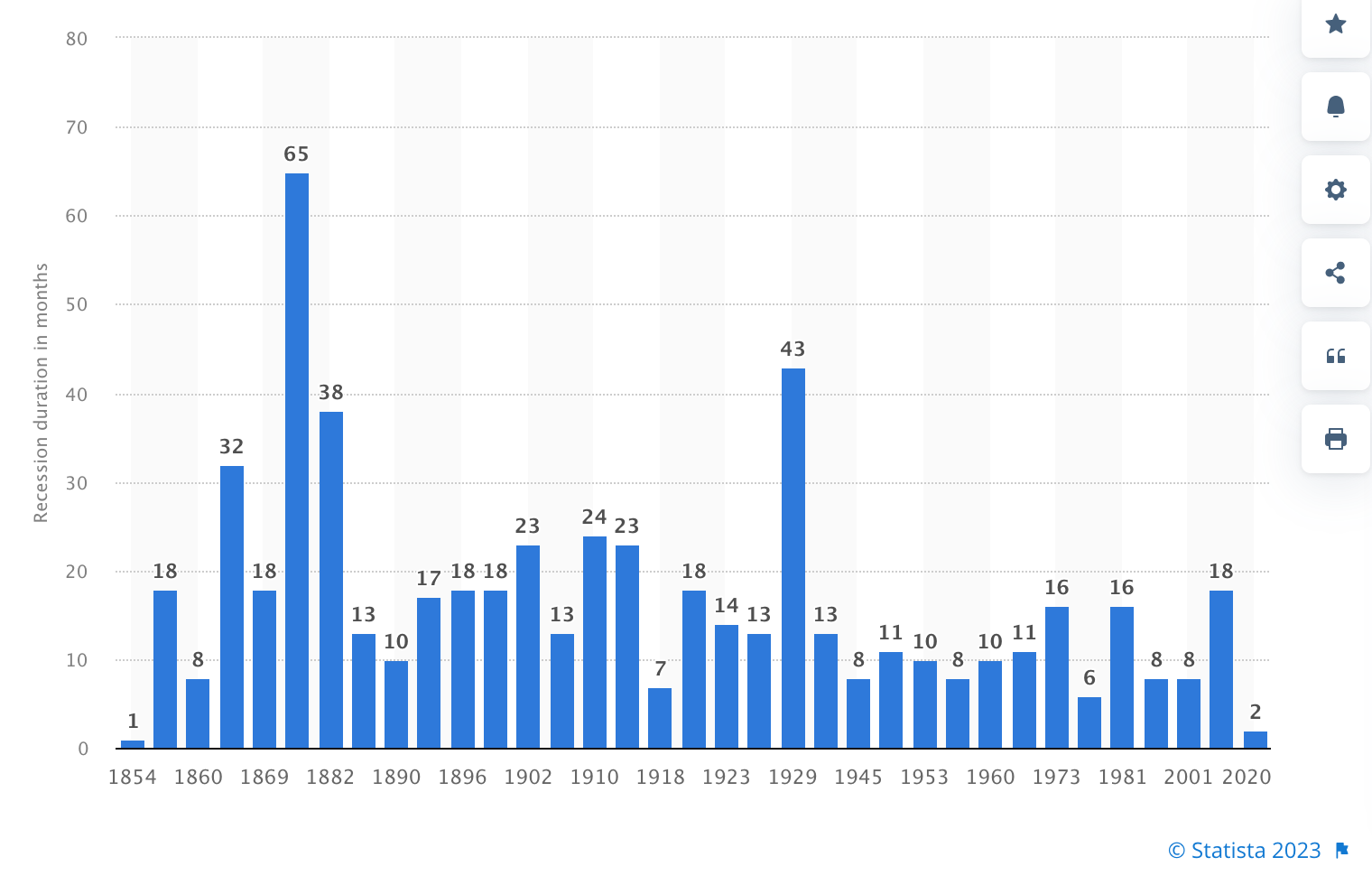Recessions are a natural part of the economic cycle, and while they can vary in length, it is generally prudent to prepare for them when they are looming. On average, recessions tend to last anywhere from 6 to 18 months.
As an immigrant worker on a work visa, there are a few things you should keep in mind during a recession:
Job security: During a recession, many companies may implement layoffs, which can impact job security. It's important to stay informed about the status of your company and industry and to take steps to protect your job, such as developing new skills and networking.
Budgeting: With reduced spending power, it's important to create a budget and prioritize your spending. This can help you manage your finances during a time of uncertainty.
Visa status: It's important to stay informed about changes to immigration policies and to ensure that your visa remains valid. During a recession, immigration policies may change, and it's important to understand how these changes may impact your ability to work and live in the country.
Networking: During a recession, it can be helpful to expand your network and connect with people in your industry. This can help you stay informed about job opportunities and can also provide support during a challenging time.
Savings: Building an emergency fund can provide financial security during a recession. It's important to set aside funds in case of job loss or reduced income.
These are a few of the things to keep in mind as an immigrant worker on a work visa during a recession. It's always a good idea to seek advice from a financial advisor or immigration lawyer to understand the specific impact a recession may have on your situation.
Maintaining H1B Status After Job Loss

Losing a job while on an H1B visa in the United States can have serious implications for your immigration status. Here is a detailed analysis of what may happen and how you can avoid being deported:
Loss of status: Losing your job means that you may lose your H1B visa status, as it is tied to your employment. If your employer has already filed a Labor Condition Application (LCA) and an H1B petition with the U.S. Citizenship and Immigration Services (USCIS), your employer is required to inform USCIS if you are no longer employed.
60-day grace period: After losing your job, you have a 60-day grace period during which you can remain in the United States and look for a new job or make arrangements to depart the country. During this time, you are in a "period of authorized stay" and are not considered out of status.
Transferring to a new employer: If you find a new employer during the 60-day grace period, they can file a new H1B petition on your behalf. This process can take several weeks, so it's important to start the process as soon as possible.
Departure from the United States: If you are unable to transfer your H1B visa to a new employer or find another way to maintain your immigration status, you must depart the United States before the end of the 60-day grace period to avoid accruing unlawful presence and potentially being barred from reentry in the future.
Unlawful presence: If you remain in the United States after the end of the 60-day grace period, you may accrue unlawful presence, which can have serious consequences for your future immigration prospects.
To avoid being deported, it's important to understand your options and take action as soon as possible. Seeking the advice of an immigration attorney can be helpful in this situation.
It's important to note that U.S. immigration laws are complex, and the implications of losing your job while on an H1B visa can vary based on your specific circumstances. This information is provided for general educational purposes only and is not a substitute for legal advice.
Legal Options for Staying in the US After H1B Status Expires
If you go out of status on your H1B visa in the United States, there are several ways to maintain your legal status, depending on your individual circumstances. Here are a few options:
Change to a different immigration status: If you are eligible, you can apply for a change of status to a different nonimmigrant visa category, such as a B-2 visitor visa, F-1 student visa, or O-1 visa for individuals with extraordinary ability.
Apply for an extension of H1B status: If you are still employed by the same employer and they are willing to sponsor you, your employer can file an extension of H1B status on your behalf.
Transfer to a new employer: If you find a new employer who is willing to sponsor you for an H1B visa, they can file a new H1B petition on your behalf.
Apply for a waiver of the H1B visa requirement: In some cases, you may be eligible to apply for a waiver of the H1B visa requirement if you can demonstrate that your departure from the United States would result in extreme hardship to you or your U.S. citizen or permanent resident spouse or parent.
Adjustment of status to permanent residency: If you are eligible, you may be able to apply for adjustment of status to permanent residency, which would allow you to stay in the United States permanently.
Departure and reentry: In some cases, you may be able to depart the United States and reenter on a new H1B visa.
These are just a few of the options available to you if you go out of status on your H1B visa. It's important to seek the advice of an immigration attorney to understand the specific options available to you and the impact of each on your immigration status. U.S. immigration laws are complex, and the consequences of going out of status can be severe, so it's important to take action as soon as possible.


